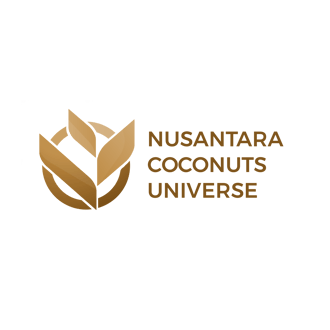Selecting the Finest Coconut Coconuts: The Importance of Sourcing from Prime Indonesian Islands for Organic, Sustainable, and Eco-Friendly Coconut Products
The coconut, often hailed as the "tree of life," is a versatile tropical fruit with numerous applications. From food and beverages to cosmetics and biofuels, coconuts have become a staple in many industries worldwide. As the demand for coconut-based products continues to rise, so too does the importance of sourcing high-quality coconuts from sustainable and ethical origins. Indonesia, renowned as the world's largest coconut producer, offers a diverse array of islands, each with its unique coconut varieties and cultivation practices. In this article, we will explore the significance of selecting coconuts from specific Indonesian islands to ensure the production of organic, sustainable, and environmentally friendly coconut products. The Significance of Sourcing from Specific Islands Indonesia's vast archipelago comprises thousands of islands, each with distinct geographical, climatic, and cultural characteristics. These factors significantly influence the quality, flavor, and nutritional content of the coconuts grown on each island. By carefully selecting coconuts from specific islands, producers can: Ensure Consistent Quality: Different islands have varying soil compositions, rainfall patterns, and cultivation methods, which can affect the coconut's size, oil content, and overall quality. By sourcing from regions with a proven track record of producing high-quality coconuts, producers can ensure a consistent supply of superior raw materials. Preserve Traditional Cultivation Practices: Many Indonesian islands have a long history of coconut cultivation, with local communities employing traditional methods that are often more sustainable than modern industrial farming practices. By supporting these traditional practices, producers can help preserve biodiversity, protect local ecosystems, and contribute to the livelihoods of rural communities. Minimize Environmental Impact: Sourcing coconuts from islands with strict environmental regulations and sustainable farming practices can help reduce the carbon footprint of coconut products. This includes minimizing the use of harmful pesticides and fertilizers, conserving water resources, and protecting coastal ecosystems. Key Factors to Consider When Selecting Coconut-Producing Islands When choosing an Indonesian island to source coconuts from, several factors should be considered: Organic Certification: Opt for coconuts from islands with certified organic farms. Organic certification ensures that coconuts are grown without the use of synthetic pesticides, fertilizers, or genetically modified organisms (GMOs). Fair Trade Practices: Support fair trade initiatives that provide fair wages and working conditions for coconut farmers. Fair trade certification helps to ensure that local communities benefit from the coconut industry. Sustainable Cultivation: Look for producers who employ sustainable agricultural practices, such as agroforestry, crop rotation, and water conservation. Biodiversity Conservation: Choose islands that prioritize biodiversity conservation and have established protected areas to safeguard natural habitats. Benefits of Using Organic, Sustainable Coconuts By selecting coconuts from prime Indonesian islands, producers can create a range of high-quality, organic, and sustainable coconut products. These products offer several benefits to consumers and the environment: Superior Taste and Nutritional Value: Organic coconuts are often considered to have a richer flavor and higher nutritional content than conventionally grown coconuts. Healthier for Consumers: Organic coconut products are free from harmful chemicals, making them a healthier choice for consumers. Reduced Environmental Impact: Sustainable coconut production helps to protect the environment and mitigate climate change. Support for Local Communities: By purchasing organic and sustainably produced coconut products, consumers can help support the livelihoods of small-scale farmers and rural communities in Indonesia. In conclusion, the selection of coconuts from specific Indonesian islands is a crucial step in ensuring the production of high-quality, organic, and sustainable coconut products. By supporting producers who prioritize sustainability, fair trade, and environmental protection, consumers can make a positive impact on both their health and the planet.


Sustainable Coconut Charcoal
